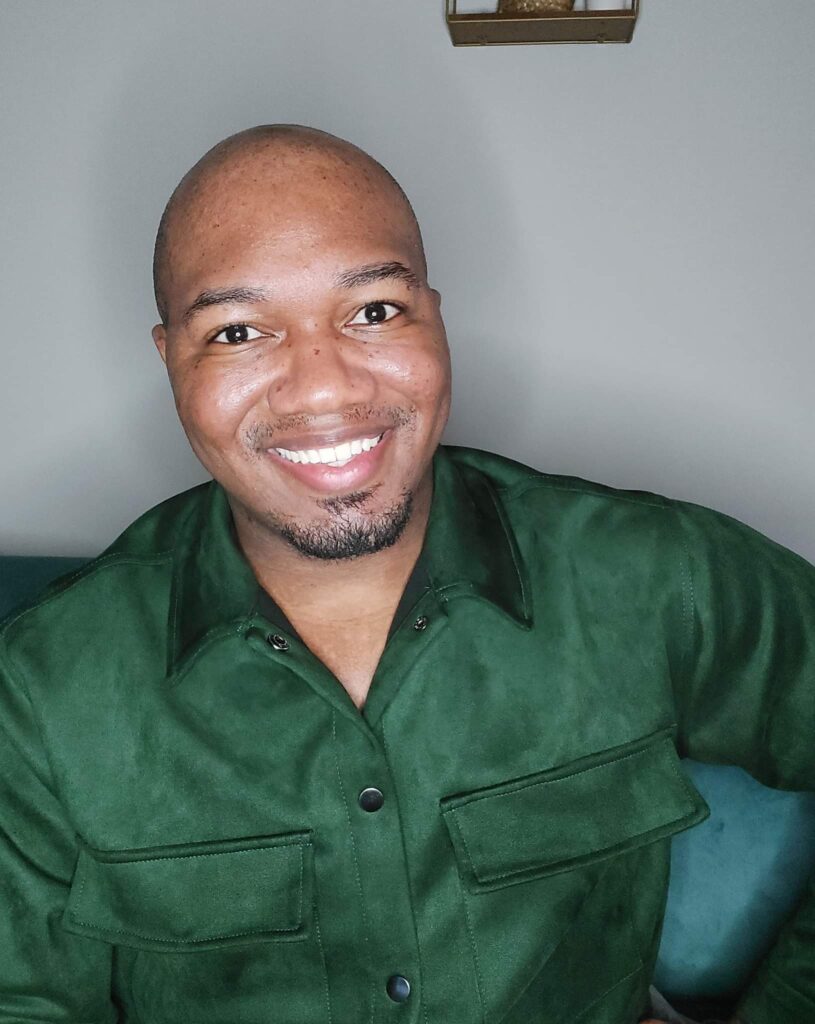Posts Tagged ‘#workplacebullying’
Six Signs of Workplace Bullying
In today’s professional landscape, workplace bullying remains a pervasive issue, often manifesting in subtle and insidious ways. For Black women, the experience of workplace bullying can be particularly challenging and frustrating, compounded by the intersections of race and gender. Andrew Pierre, on TikTok as @TheWorkGroupChat, is a former human resources manager bringing awareness to workplace bullying while offering effective strategies to combat the abuse. We spoke with Pierre and he shared six ways bullying can show up in your office.
1. It’s Not Always Obvious
Workplace bullying doesn’t always present itself in clear, blatant forms. Often, it is subtle and insidious, making it difficult to identify and address. It can manifest through exclusion from important meetings, being ignored during discussions, or being deliberately given unmanageable workloads.
2. Excess Criticism and Undermining
Excessive criticism, especially when it’s unwarranted or overly harsh, is a common sign of bullying. This can include constant negative feedback, being held to unrealistic standards, and having your contributions minimized or ignored.
3. Verbal Abuse and Intimidation
Bullying can also take the form of verbal abuse and intimidation. This includes yelling, threats, derogatory remarks, and public humiliation. Such behaviors are designed to demean and control the target, creating a hostile work environment.
4. Microaggressions
Microaggressions are everyday slights, insults, or dismissals that, whether intentional or unintentional, communicate hostile or negative attitudes. For Black women, this can include comments about their hair, questioning their competence, or making assumptions based on stereotypes.
5. Denial of Opportunities
Being consistently overlooked for promotions, projects, or training opportunities can be a form of bullying. This systemic denial of opportunities not only stifles career growth but also reinforces feelings of inadequacy and exclusion.
6. Retaliation and Gaslighting
When you speak up against unfair treatment or bullying, retaliation can occur. This might involve being demoted, ostracized, or given unfavorable assignments. Gaslighting, where the bully makes you question your reality and experiences, is another tactic used to undermine and control.

How to Deal with Bullying
Document
Keep a detailed record of all instances of bullying. Note dates, times, what was said or done, and any witnesses. Documentation is crucial when presenting your case to HR or higher management and can serve as evidence if legal action becomes necessary.
Find Allies at Work
Building a support network within your workplace can provide emotional support and practical assistance. Allies can offer validation, accompany you to meetings, and help amplify your voice when addressing the bullying.
Refer to the Company and Employee Handbook
Familiarize yourself with your company’s policies on harassment and bullying. Knowing your rights and the procedures for reporting bullying can empower you to take the necessary steps to address the issue. Refer to the employee handbook and any relevant workplace guidelines.
Workplace bullying is a serious issue that can have profound impacts on the well-being and career progression of Black women. Recognizing the signs and knowing how to respond are crucial steps in combatting this pervasive problem. By documenting incidents, building a support network, and leveraging company policies, you can protect yourself and work towards creating a more inclusive and respectful workplace. Remember, you are not alone, and there are resources and allies available to support you in this journey.
Fighting Back: Black Women Battle Against Workplace Bullying
Necie Edwards, an empowerment and wellness advocate for women, was lying in the emergency room when she finally realized the workplace bullying she endured was causing her severe mental and physical harm. Formerly a manager in medical education for a pharmaceutical company, she is now an advocate for others who suffer autoimmune issues, often brought on by workplace stress.
“I started getting really bad chest pains. Some days it felt like my chest was going to split wide open.”

A high-performing Black woman with stellar performance reviews, after the company she worked for was purchased and her team changed, Edwards recounts being piled with excessive work and excluded from meetings, colleagues making fun of her through instant messages while in her presence and being humiliated by leadership regarding a software program that even upper management struggled to use. Her work “friends” knew about the abusive treatment Edwards experienced, but they wouldn’t speak out for fear of losing their jobs. They began to isolate from her, which made each day even more unbearable.
Christin Peeples, The Workplace Bullying Coach believes that workplace bullying, especially for Black women is an epidemic. She says that in the beginning, many want to give their abusers the benefit of the doubt, but Peeples advises that we all have an internal GPS that we should listen to when it tells us things are going left.
“Unfortunately, a lot of us, we feel that we can give people that rope, if you will, to be mean to us, but your soul is telling you you’re being mistreated.”
Edwards understands this all too well. As her company continued to ignore her complaints, she went to human resources who blatantly refused to investigate her claims. This prompted Edwards to take matters a step further.
“I got an attorney because I knew the direction it was headed and I made up my mind that I am going to fight this tooth and nail because I’ve always had good reviews, never had an issue and now I’m here.”
Peeples suggests that you may feel like confronting the bullies, but she believes it is best to remain professional and quiet as you document everything, especially when receiving feedback that doesn’t match previous reviews and actual performance. However, once the documentation is solid, depending on the situation and where you are mentally, it can be helpful to professionally attempt to push back on the abuse.

Edwards kept solid documentation and after a while, she felt the pressure rising when a white female colleague summoned her in a conference room and began yelling.
“I told her this is the last day you’re going to mess with me. I’m tired of it. I’m sick of ya’ll.”
After this exchange, the white woman began to cry. Later, Edwards’ manager, a white male told her to apologize to the tearful co-worker. She refused.
Another trip to the emergency room after paramedics were called to her office for a stress-induced attack and Edwards was placed on medical leave. During her medical leave, they continued to harass her, at one point cutting off her medical benefits and disability pay. Edwards decided that playing nice was getting her nowhere, so she threatened to be a whistle-blower for issues regarding an upcoming drug the company was set to release and for the health issues they were causing her due to their toxic environment.
“At that point, what did I have to lose?”
Miraculously, all of her benefits were restored, and her check was sent via FedEx.
Nae’ Clark, licensed cosmetologist and founder of NL Beauty Academy in Michigan was a hair extension specialist with a successful business before deciding to go to cosmetology school to expand her craft and obtain her license.
“I wanted to step outside the box. I wanted to take a step further, I wanted to learn more.”
She says the bullying she experienced from the white women in cosmetology school took the fun out of learning. Clark says despite receiving 100 percent on all tests, the instructor would constantly pull her to the side in an intimidating manner threatening that Clark would not pass the course, citing tardiness as the reason. This was puzzling to Clark because she’d already received approval to arrive late on specific days.

“My son wears cochlear implants, so every Tuesday, I would have to take him to speech therapy, and then drop him off to school. Sometimes I would be late, and they knew this in advance.”
Several incidents occurred where instructors made racist comments about “textured” (Black) hair not being the preference for models because they “don’t do a lot of that hair”.
Clark never told anyone about these incidents. She kept her head down and finished the program on time.
Her performance was so stellar that once Clark graduated, the school invited her to return as an instructor. She put the negativity behind her and looked forward to a new role. She was excited to teach others about her passion, but the enthusiasm was short-lived. She soon found herself in a hostile work environment ripe with bullying and racism from co-workers and management. When she would confront the issues, she was called aggressive, gaslit and ignored.
“They think we are always looking for race problems, but I don’t even want to think about that, I just want to come like everybody else and learn.”
Management retaliated and her colleagues followed their lead.
“It’ll be days I would walk in, and our lead, my boss, she wouldn’t even speak to me.”
It wasn’t until she fought back and contacted human resources, that the harassment toned down. However, the bullies continued to say Clark was the issue and would not take ownership of their toxic behavior.
Peeples says that gaslighting is the biggest complaint she receives from her clients.
“At the end of the day, it’s people telling them what they are feeling is wrong, and I want people to understand that gaslighting is a real thing.”
Although Clark and others were more qualified, a white woman was made the lead for textured hair without minimal experience working with Black hair. Another sign that the culture was not going to improve.
“No matter what you do, no matter how talented you are, they will not accept you. They do not want you to be great. They do not want you to outshine them.”
An incident where Black people were referred to as “those people” in front of a client, pushed Clark to send more formal correspondence to HR and the CEO of the company because complaints to management were laid to the side. Clark noticed that when Black clients came in, their hair wasn’t given the same attention nor the high-level service given to others.
“Every time I went up to her to report something or I would tell them, you know, just how mean and rude they were to me on the floor, nothing. Nothing started happening until I started writing HR and going to HR.”
Clark says she is traumatized and has had to start therapy for the daily taunts she endures but will continue to advocate for herself. The treatment she receives in the workplace takes it’s toll, but she she remains confident in her abilities.
“I know who I am, I respect the company. I am thinking they would be happy to have me, but they weren’t.”
